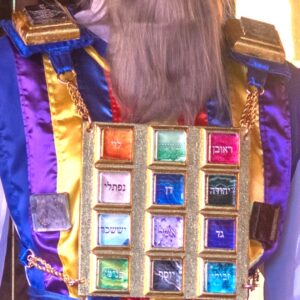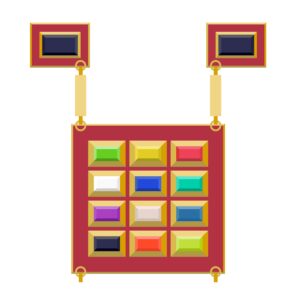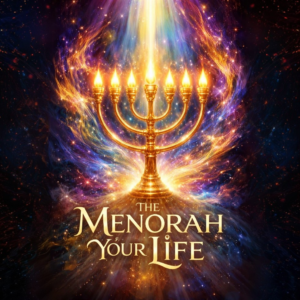The 42 Journeys
ADAPTED FROM HIS AUDIO SHIUR ON SHEVACHAY HARAN LESSON 241
The Journeys of a Jew
The journeys of a Jew are never just geographic—they are spiritual. Parshas Masei lists the 42 journeys of Bnei Yisrael in the wilderness. The Midrash says these journeys correspond to the 42-letter Name of Hashem. But more deeply, our Sages teach that these travels came as a kaparah (atonement) for the sin of the Golden Calf, which began with the words “These are your gods, O Israel.” To correct “Eileh elohecha Yisrael,” the Torah begins “Eileh masei Bnei Yisrael”—“These are the journeys of the children of Israel.” Each step was part of their spiritual rehabilitation.
Faith as the Antidote to Idolatry
Reb Noson of Breslov teaches that in our day, we no longer worship physical idols, but we struggle with something more subtle: lack of emunah and bitachon. When a person feels compelled to leave a place of Torah to make a livelihood—traveling to distant, spiritually barren places—it may reflect a deeper fear: that Hashem cannot provide. But true emunah is knowing that Hashem provides for all living beings, even the smallest worm. He will surely sustain a person who trusts in Him.
One who truly trusts in Hashem lives with calmness. He is not driven by anxiety or panic. He knows that success and sustenance are not earned solely through talent or effort—but through Divine kindness. And to receive that kindness, one must create the vessel: a life of bitachon, of deep, quiet faith.
Even a Melamed Who Goes out of Town
Rebbe Nachman said that a melamed who leaves town to teach Torah is likened to a Shifchah Cana’anis—a Canaanite maidservant. This is a harsh term, representing one of the lowest spiritual states. Of course, as with all of Rebbe Nachman’s teachings, there are deep layers of meaning that we can only partially understand. But the comparison indicates a significant spiritual fall.
The Danger of Leaving Home – Plag Guf
The Gemara states that one who leaves home is called a plag guf—half a body. Even if a person is married, when he travels and leaves his wife behind, he reverts to being spiritually incomplete. Marriage reunites a person with the other half of his soul. But separation—especially for extended or unnecessary travel—renders him vulnerable, incomplete, and at spiritual risk. This vulnerability can open a person up to temptation and sin.
The True Source of Parnasa
Rebbe Nachman repeatedly emphasized that emunah and bitachon are the true foundations of parnasa. A Jew must recognize that his livelihood does not come from his brilliance, strength, or business acumen. It does not come from “kochi v’otzem yadi”—”my strength and the might of my hand.” Rather, as the pasuk says, “ואתה נותן להם את אכלם בעתו“—“You give them their food in its time.” Livelihood comes from Hashem alone.
Chillul Shabbos Does Not Bring Blessing
Those who imagine that they can increase their income by transgressing the Torah—by working on Shabbos, for example—are not only violating a severe prohibition, but they are harming their own source of blessing. Not only will they lose spiritually, but they will also lose materially. Hashem does not need to wait until the next world to deliver judgment; a person can experience the consequences in this world too.
Blessing Comes Through Mitzvos
One who fulfills the will of Hashem, observes the mitzvos, and trusts in Divine Providence will surely find favor in Hashem’s eyes. He will receive more blessing by following the Torah than by chasing after it through compromise. When a person has bitachon, he won’t feel the need to travel far, to leave his family and community, or to seek business in spiritually dangerous places.
Leaving home for business—whether to sell, to teach, or to expand into new cities—shows a deficiency in bitachon. Whether it’s a traveling salesman or a major businessman opening branches far away, the spiritual cost is real. This lifestyle, Rebbe Nachman taught, is not neutral—it is sinful and reflects a lack of faith.
The True Key to Shefa
The true key to receiving material blessing is hinted in the verse “ובירכך בכל אשר תעשה”—“And He will bless you in all that you do.” A Jew must do his part, his basic hishtadlus, but then turn his full heart toward Hashem—through Torah study, prayer, and acts of kindness. That is what brings down shefa—abundant blessing from Heaven.
Bitachon and emunah are not just virtues; they are spiritual pipelines through which Hashem channels both spiritual and material blessing.
May we be worthy to fulfill these teachings, to follow in the path of holiness, to strengthen ourselves in emunah and in the words of Hashem and His tzaddikim. In that merit, may we witness the downfall of the enemies of Israel, the elevation of Klal Yisrael, and the coming of Mashiach Tzidkeinu and the rebuilding of the Beis HaMikdash, speedily in our days. Amen, v’amen.
- 0 comment




















